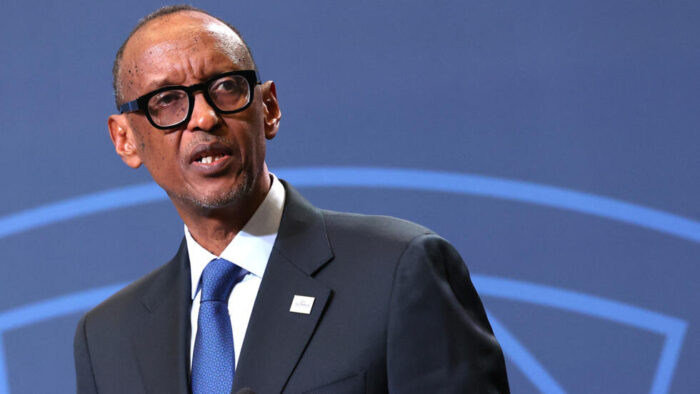Kagame Sweeps Rwanda Presidential Election, Wins Fourth Term

Rwandan President Paul Kagame has secured a fourth term in office, winning 99.15 percent of the votes in Monday’s presidential election.
According to the country’s electoral commission, only about 79 percent of ballots have been counted so far. Authorities reported that 9.5 million Rwandans registered to vote out of the country’s 14 million population.
This indicates a significant voter turnout, reflecting the high level of engagement in the election process among Rwandans. The remaining ballots are still being tallied to finalize the election results.
Kagame’s opponents — Frank Habineza of the Democratic Green Party of Rwanda and independent candidate Philippe Mpayimana — each received less than one percent in the provisional results.
The result is the same as in 2017 when Kagame swooped in nearly 99 percent of the votes.
Final results are expected by July 27, although they could be announced sooner.
The president thanked Rwandans for their trust, in an address at his Rwandan Patriotic Front (RPF) party headquarters in Kigali, the capital city.
READ: Things You Probably Don’t Know About Donald Trump’s 2024 Running Mate, JD Vance
Kagame seized power as the head of rebels who took control of the government and ended the genocide in 1994, becoming vice-president and de facto leader from then to 2000, when he became president.
The 64-year-old is eligible to continue in office till 2034 after a constitutional amendment in 2015 changed a two-term limit.
Although he has garnered international acclaim for presiding over peace and economic growth since the end of the genocide in Rwanda, he has also faced criticisms from rights groups and the West.
But the Rwandan leader has said he is not bothered about what foreign countries think of his decision to extend his rule.
On Saturday, he told journalists that his mandate comes from the people.

Sodiq Lawal is a passionate and dedicated journalist with a knack for uncovering captivating stories in the bustling metropolis of Osun State and Nigeria at large. He has a versatile reporting style, covering a wide range of topics, from politics , campus, and social issues to arts and culture, seeking impact in all facets of the society.









